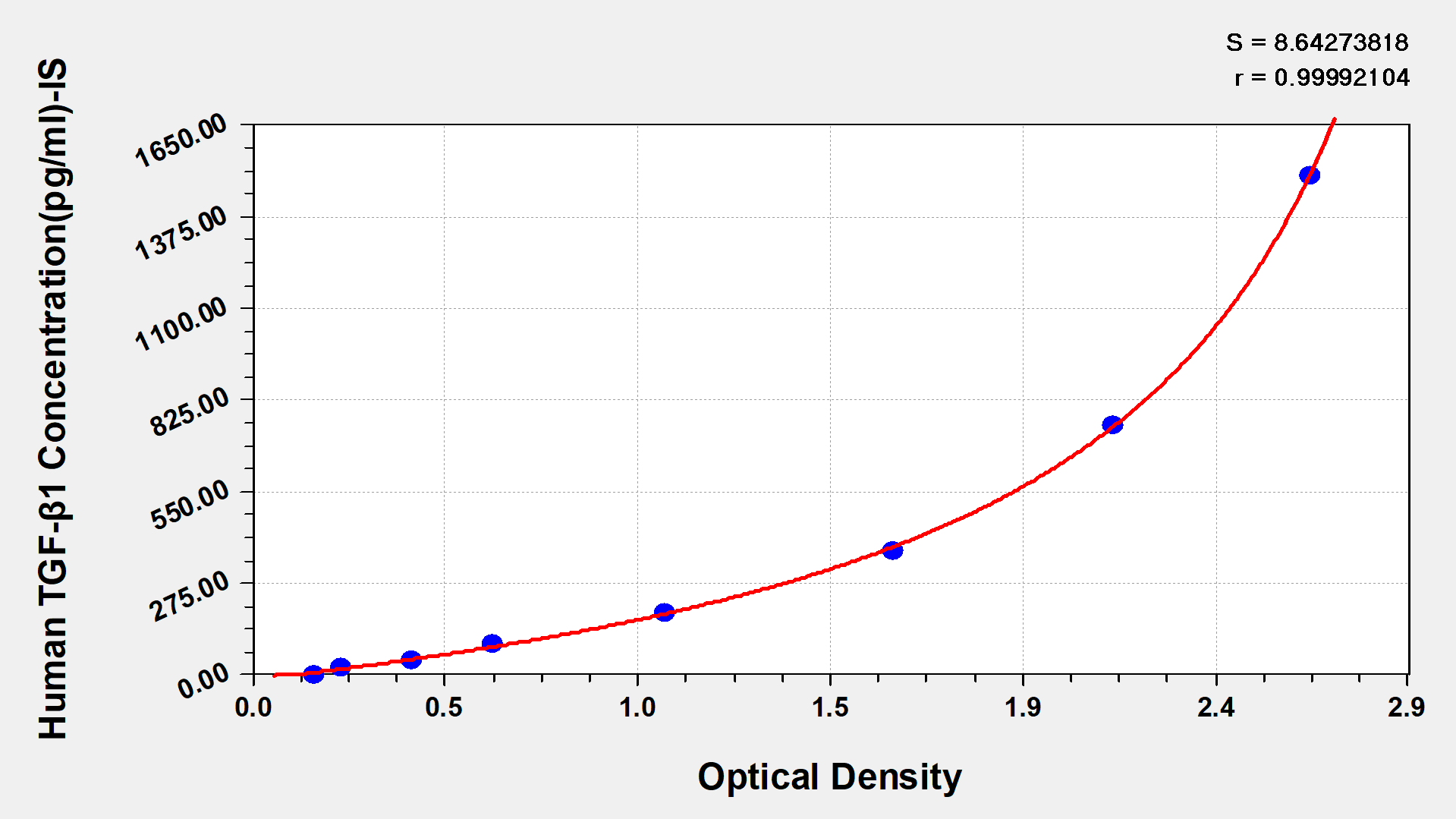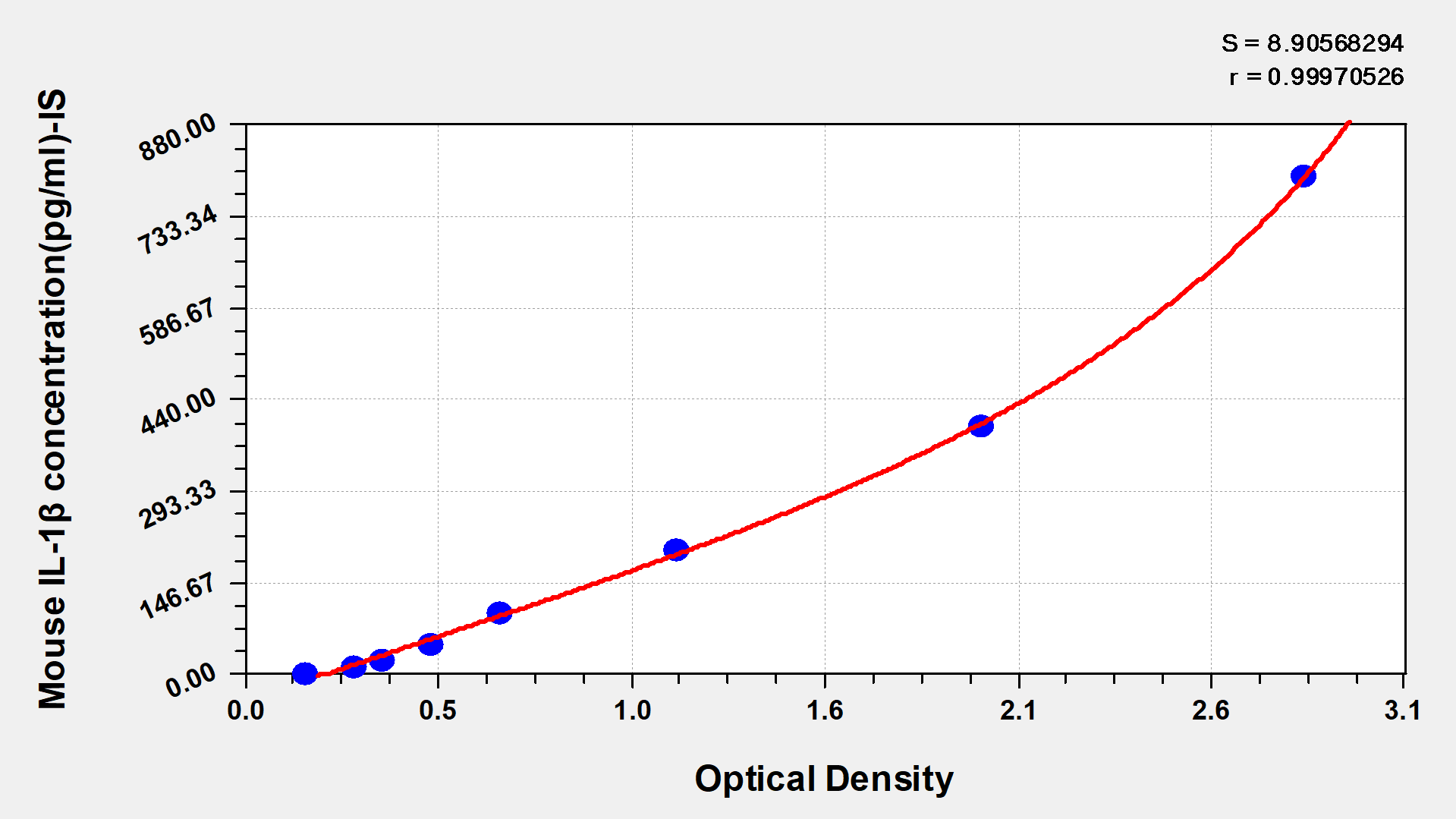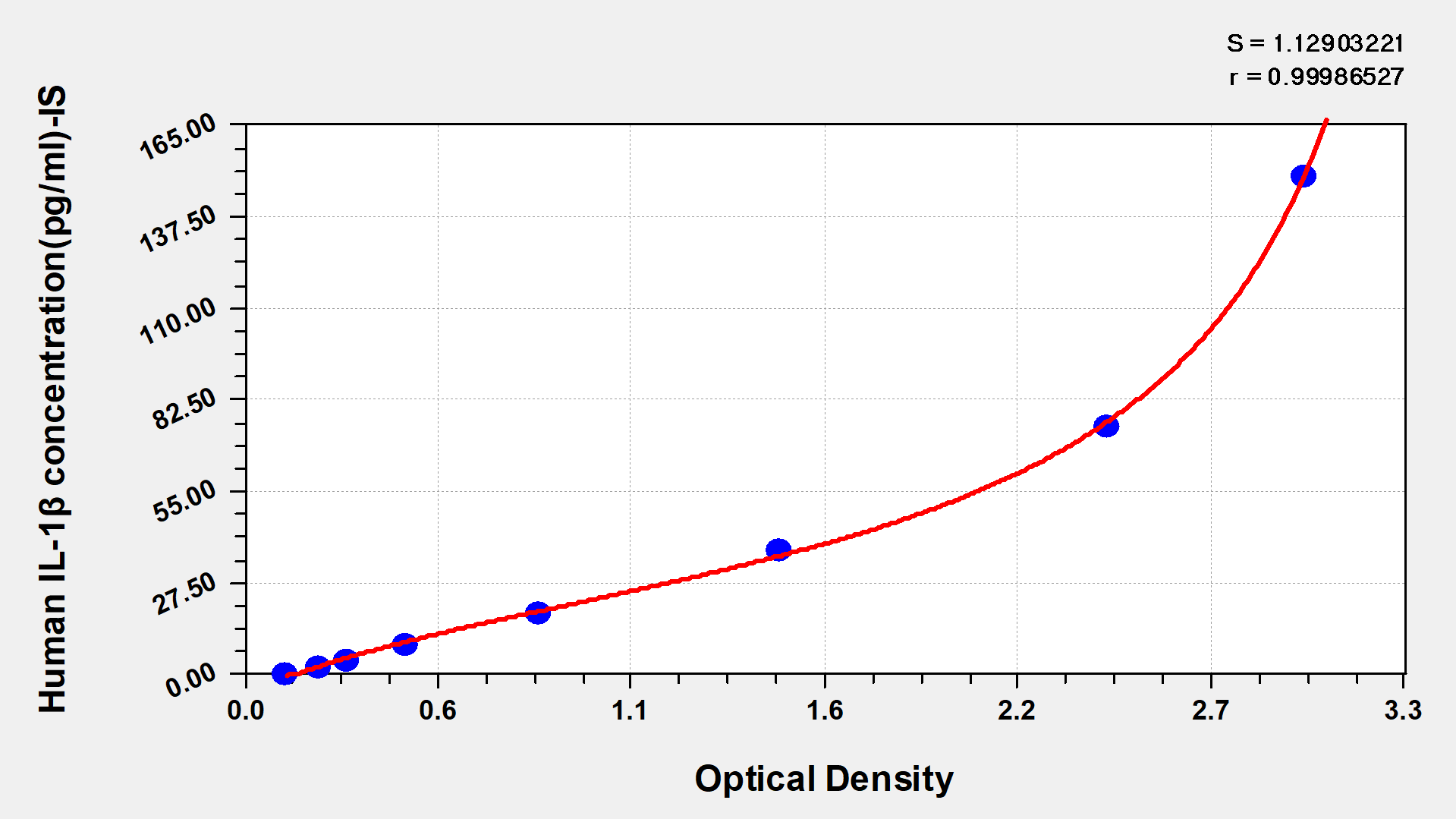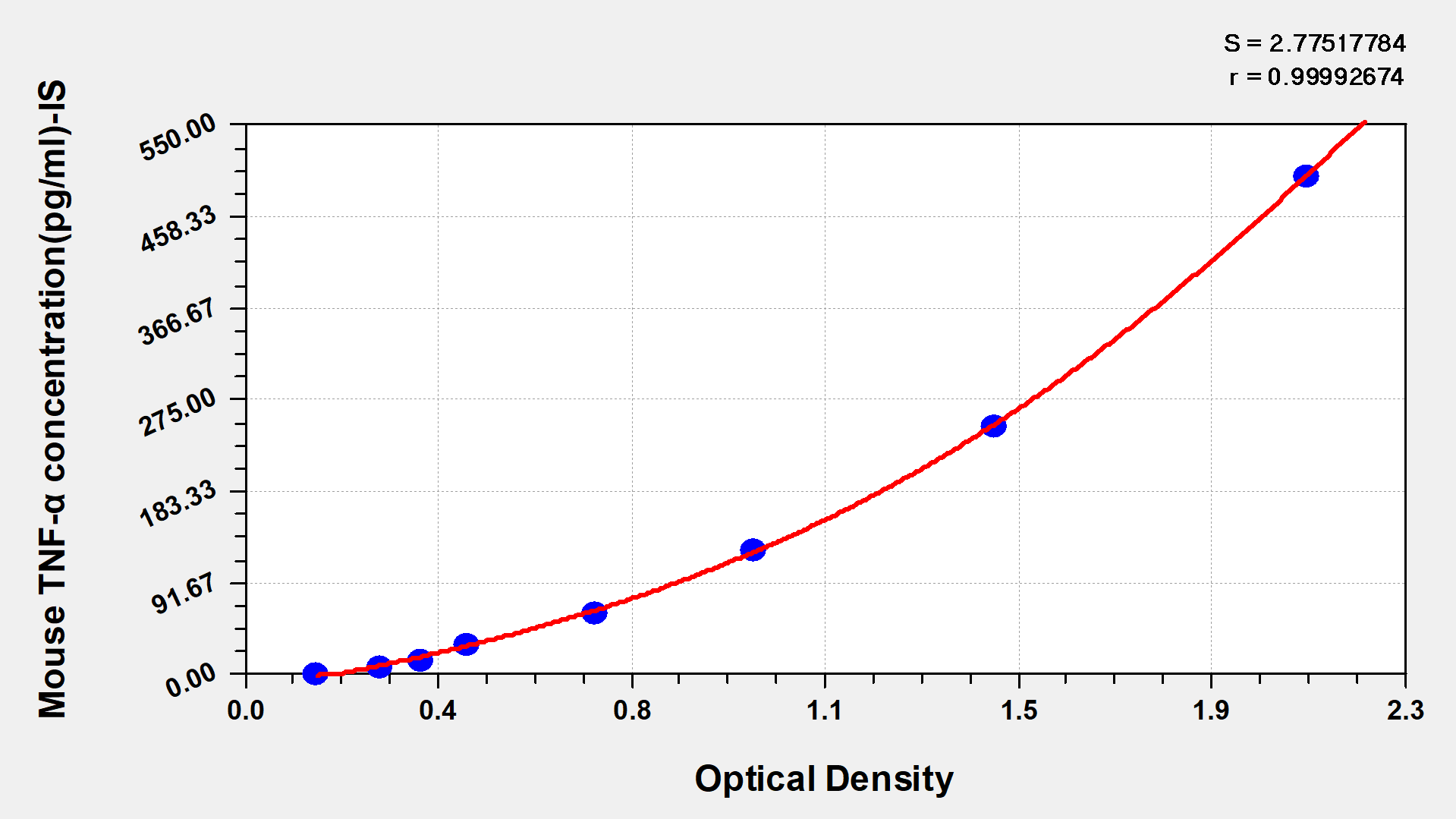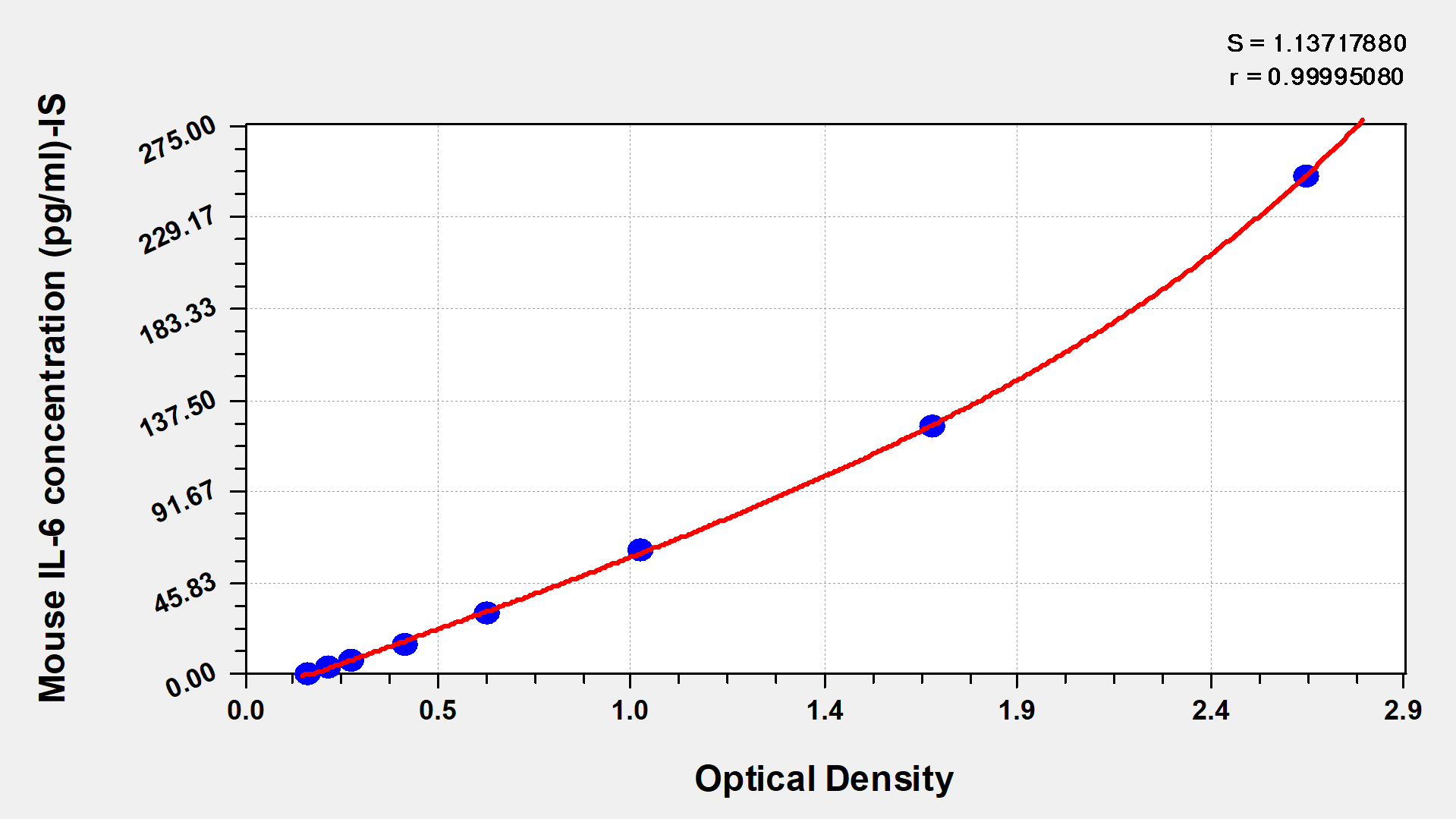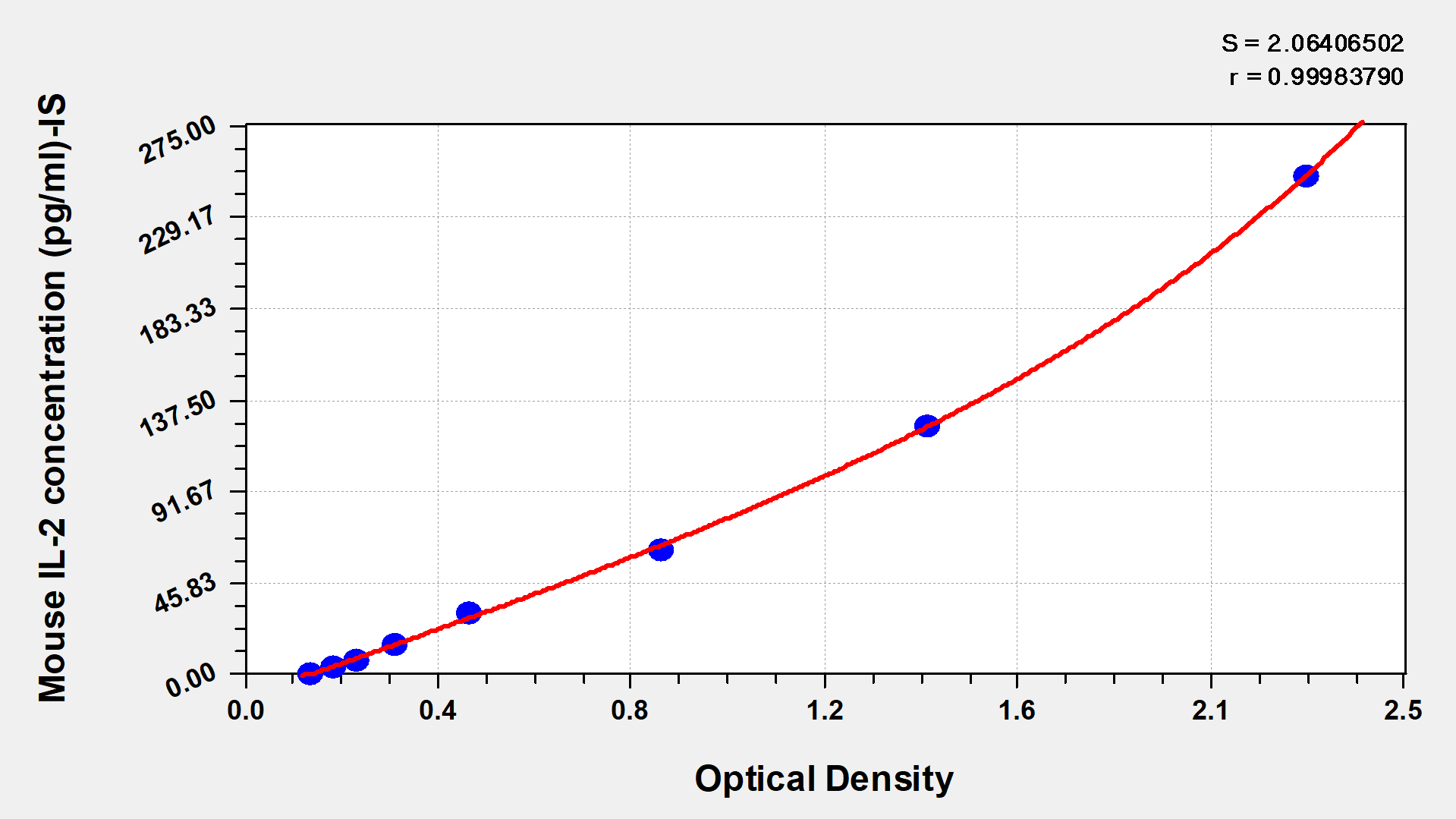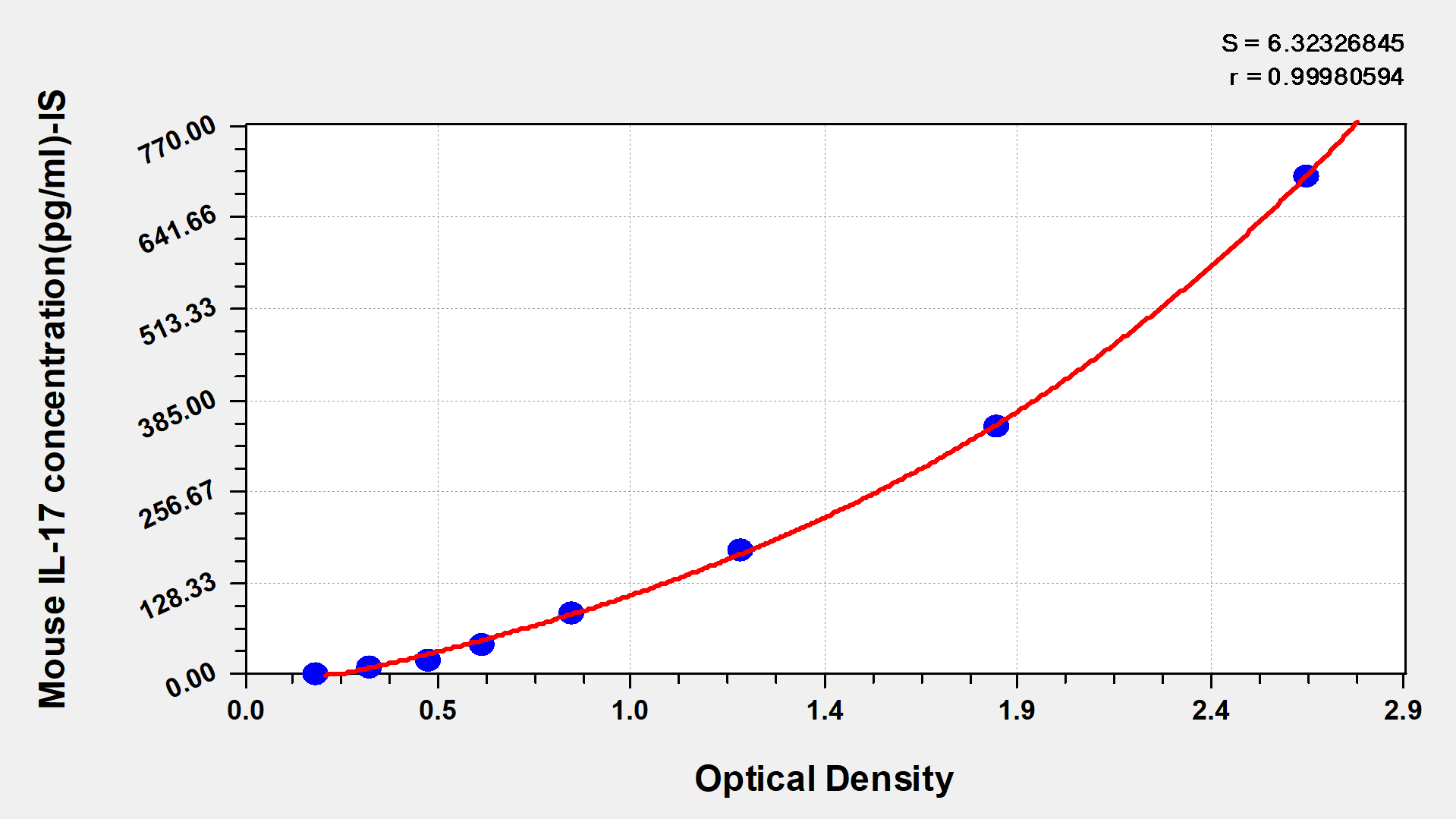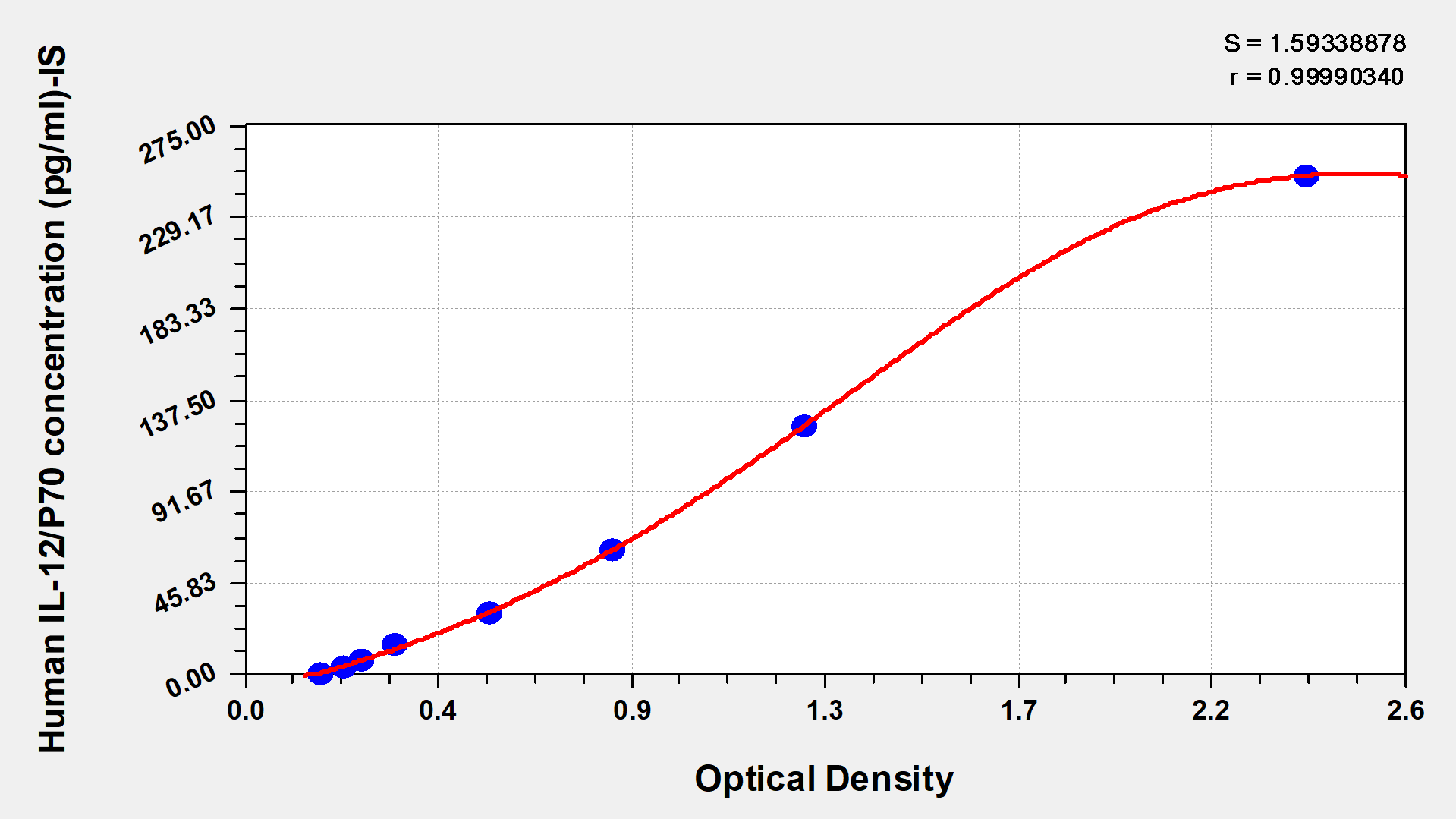-
中文名称:人巨噬细胞刺激蛋白(MSP)酶联免疫试剂盒
-
货号:CSB-E09062h
-
规格:96T/48T
-
价格:¥3200/¥2500
-
其他:
产品详情
-
产品描述:本试剂盒为人巨噬细胞刺激蛋白(MSP)的定量检测而设计,MSP属于肝细胞生长因子家族成员,通过激活RON受体酪氨酸激酶参与炎症调控、免疫应答及组织修复等生理过程,其表达水平与肿瘤微环境调控、纤维化疾病及炎症性疾病研究密切相关。产品采用双抗体夹心法定量检测血清、血浆及组织匀浆样本中的MSP蛋白,灵敏度达0.156 ng/mL,检测范围为0.156-10 ng/mL,可精准捕捉低丰度目标分子。试剂盒适用于探索MSP在免疫调节相关疾病模型中的作用机制,如肿瘤侵袭转移研究、纤维化病理进程分析或炎症反应动态监测,为科研人员提供稳定可靠的实验工具。该产品严格匹配生物样本检测需求,实验流程经过标准化验证,确保实验数据的一致性和可重复性,助力于基础医学研究与分子机制解析。
-
别名:D3F15S2 ELISA Kit; DNF15S2 ELISA Kit; Hepatocyte growth factor like protein alpha chain ELISA Kit; Hepatocyte growth factor like protein ELISA Kit; Hepatocyte growth factor like protein beta chain ELISA Kit; Hepatocyte growth factor like protein homolog ELISA Kit; Hepatocyte growth factor-like protein beta chain ELISA Kit; HGFL ELISA Kit; HGFL_HUMAN ELISA Kit; Macrophage stimulating 1 (hepatocyte growth factor like) ELISA Kit; Macrophage stimulatory protein ELISA Kit; Macrophage-stimulating protein ELISA Kit; MSP ELISA Kit; MST1 ELISA Kit; NF15S2 ELISA Kit; OTTHUMP00000208927 ELISA Kit
-
缩写:MST1
-
Uniprot No.:
-
种属:Homo sapiens (Human)
-
样本类型:serum, plasma, tissue homogenates
-
检测范围:0.156 ng/mL-10 ng/mL
-
灵敏度:0.039 ng/mL
-
反应时间:1-5h
-
样本体积:50-100ul
-
检测波长:450 nm
-
研究领域:Immunology
-
测定原理:quantitative
-
测定方法:Sandwich
-
精密度:
Intra-assay Precision (Precision within an assay): CV%<8%
Three samples of known concentration were tested twenty times on one plate to assess.
Inter-assay Precision (Precision between assays): CV%<10%
Three samples of known concentration were tested in twenty assays to assess.
Intra-Assay Precision
Inter-Assay Precision
Sample
1
2
3
1
2
3
n
20
20
20
20
20
20
Mean(ng/ml)
1.255
1.265
1.297
1.287
1.286
1.317
SD
0.038
0.043
0.035
0.044
0.044
0.053
CV(%)
4.822
5.409
4.294
5.439
5.446
6.401
-
线性度:
To assess the linearity of the assay, samples were spiked with high concentrations of human MSP in various matrices and diluted with the Sample Diluent to produce samples with values within the dynamic range of the assay.
Sample
Serum(n=4)
1:20
Average %
101
Range %
94-108
1:40
Average %
105
Range %
99-109
1:80
Average %
89
Range %
82-96
1:160
Average %
93
Range %
87-99
-
回收率:
The recovery of human MSP spiked to levels throughout the range of the assay in various matrices was evaluated. Samples were diluted prior to assay as directed in the Sample Preparation section.
Sample Type
Average % Recovery
Range%
Serum (n=5)
104
97-113
EDTA plasma (n=4)
100
95-104
-
标准曲线:
These standard curves are provided for demonstration only. A standard curve should be generated for each set of samples assayed.
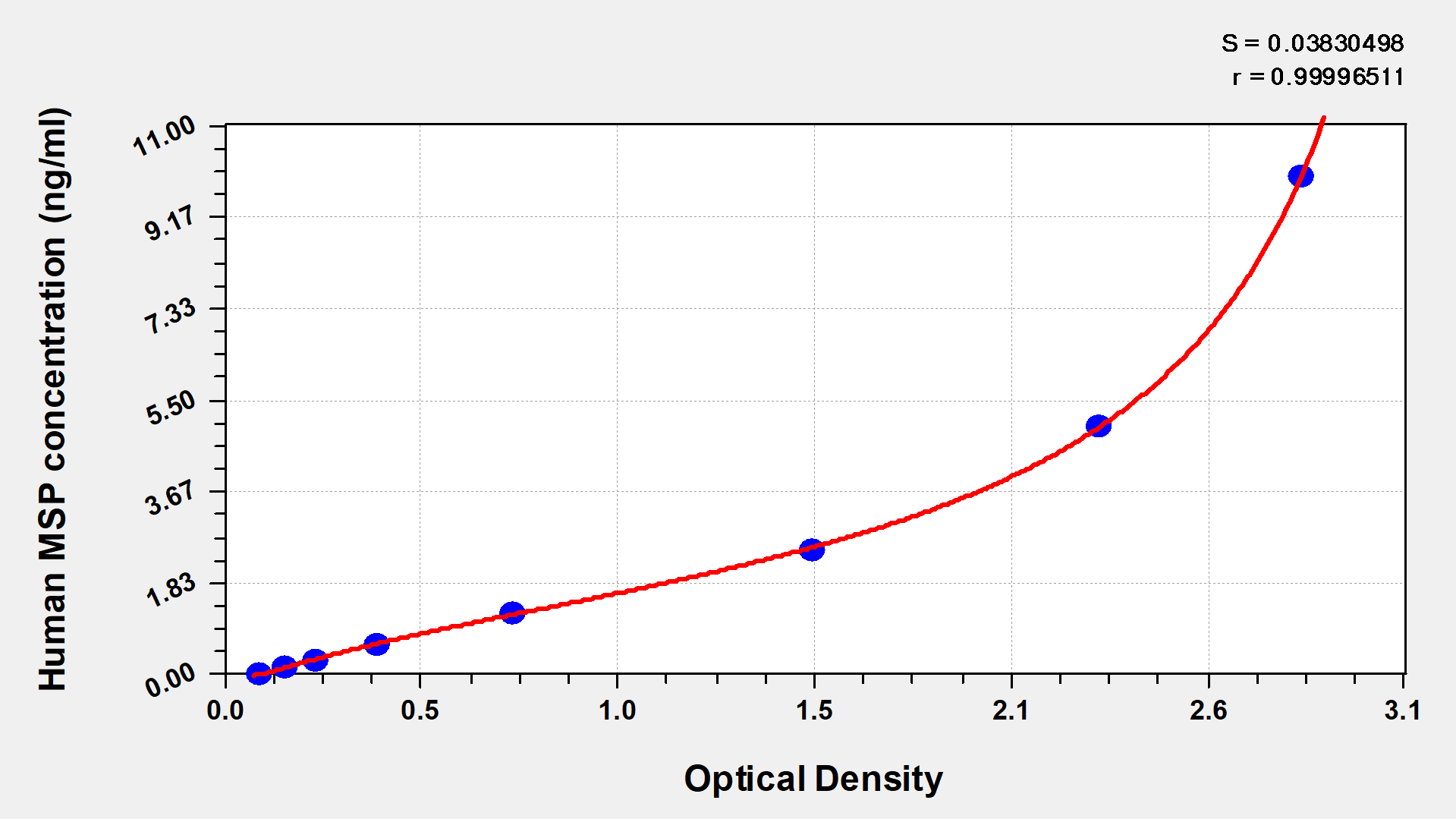
ng/ml
OD1
OD2
Average
Corrected
10
2.827
2.787
2.807
2.704
5
2.314
2.254
2.284
2.181
2.5
1.511
1.566
1.539
1.436
1.25
0.745
0.773
0.759
0.656
0.625
0.412
0.402
0.407
0.304
0.312
0.250
0.242
0.246
0.143
0.156
0.167
0.171
0.169
0.066
0
0.101
0.105
0.103
-
数据处理:
-
货期:3-5 working days
引用文献
- FKN regulates macrophage activation in lupus nephritis via the Hippo signaling pathway Y Zuo,ResearchSquare,2022
相关产品
靶点详情
-
最新研究进展:MST1,全名为肌肉特异性蛋白激酶1,是一种重要的信号转导蛋白。最近的研究表明,MST1参与了多种疾病的发生和发展,包括肿瘤、心血管疾病和神经退行性疾病等。MST1还与炎症、自噬和细胞凋亡等生物学过程相关。
-
基因功能参考文献:
- Mst1 has an important role in inhibiting the growth of NSCLC in vitro and in vivo; its antiproliferative effect is associated with induction of apoptosis. PMID: 23928732
- These data suggest that MSP is an effective inhibitor of inflammation and lipid accumulation in the stressed liver, thereby indicating that MSP has a key regulatory role in non-alcoholic steatohepatitis. PMID: 27609031
- Identify MST1/MSP as a mitogen for tracheal basal cells. PMID: 25551685
- MSP appears to promote the migration of fibroblasts, enhances collagen synthesis and remodeling, and effectively improves wound healing. PMID: 25315688
- Elevated serum levels of MST1 were found in subjects with excessive alcohol use. PMID: 25704570
- These results support the hypothesis that the alpha-chain of MSPalphabeta mediates RON dimerization. PMID: 25193665
- functional consequences of the macrophage stimulating protein 689C inflammatory bowel disease risk allele PMID: 24409221
- Results suggest that the [AA] genotype of the common MST1 variant rs3197999 enhances genetic risk of sporadic extrahepatic cholangiocarcinoma irrespective of primary sclerosing cholangitis status. PMID: 23422030
- MSP may be one of the major determinants that affects the properties of tumor stroma and that produces a permissive microenvironment to promote cancer metastasis PMID: 23011677
- The present results refine the known genetic architecture in primary sclerosing cholangitis by confirming MST1 locus association. PMID: 22554193
- the missense SNP impairs MSP function by reducing its affinity to RON and perhaps through a secondary effect on in vivo concentration arising from reduced thermodynamic stability, resulting in down-regulation of the MSP/RON signaling pathway. PMID: 22087277
- HAT cleaves proMSP at the physiological activation site PMID: 22245154
- Studies indicate that the cylindromatosis/turban tumor syndrome gene (CYLD) ranked highest, followed by acylaminoacyl-peptidase (APEH), dystroglycan (DAG1), macrophage-stimulating protein (MST1) and ubiquitin-specific peptidase 4 (USP4). PMID: 21931648
- These findings suggest that the MSP/RON signaling pathway may be regulated by hepsin in tissue homeostasis and in disease pathologies, such as in cancer and immune disorders. PMID: 21875933
- considerable number of Merkel cell carcinoma cases expressed both RON and MSP, while Merkel cells do not express these molecules PMID: 21723047
- MSP-induced RSK2 activation is a critical determinant linking RON signaling to cellular EMT program. PMID: 21619683
- the oncogenic effect of BRAF(V600E) is associated with the inhibition of MST1 tumor suppressor pathways, and that the activity of RASSF1A-MST1-FoxO3 pathways determines the phenotypes of BRAF(V600E) tumors. PMID: 21249150
- results suggest that MSP induces uPAR expression via MAPK, AP-1 and NF-kappaB signaling pathways PMID: 21081472
- Observational study and genome-wide association study of gene-disease association, gene-environment interaction, and pharmacogenomic / toxicogenomic. (HuGE Navigator) PMID: 20014019
- These results suggest that activation of RON by macrophage-stimulating protein inhibits LPS-induced macrophage Cox-2 expression. PMID: 12177064
- Data show that macrophage stimulating protein (MSP) and its receptor (Ron) induce phosphorylation of both Ron and alpha6beta4 integrin, and result in activation of alpha3beta1 integrin. PMID: 12919677
- macrophage-stimulating protein-responsive cell growth in culture is suppressed by the ron-sema domain PMID: 14597639
- Macrophage stimulating protein and its receptor RON are involved in the pathophysiology of endometriosis. PMID: 15764806
- repression of MSP gene expression by mutant p53 may contribute to oncogenesis in a cell type-specific manner PMID: 16170349
- overexpression of MSP, MT-SP1, and MST1R was a strong independent indicator of both metastasis and death in human breast cancer PMID: 17456594
- Cell migration and production of inflammatory cytokines by the brain are enhanced by MSP stimulation in primary microglia. PMID: 18480548
- The five gene transcripts (aldolase B, elafin, MST-1, simNIPhom and SLC6A14) were changed in patients with ulcerative colitis, and were related to the disease activity. PMID: 18700007
- Gene-centric association mapping of chromosome 3p implicates MST1 in IBD pathogenesis. PMID: 19079170
- Results suggest that hepatocyte growth factor activator is a major serum activator of pro-macrophage-stimulating protein. PMID: 19456860
- The effect of BSN-MST1 locus on Crohn's disease predisposition was replicated, but no influence on ulcerative colitis or multiple sclerosis predisposition could be detected PMID: 19657358
显示更多
收起更多
-
相关疾病:MST1 variant Cys-689 may be associated with inflammatory bowel disease (IBD), a chronic, relapsing inflammation of the gastrointestinal tract with a complex etiology. It is unsure whether Cys-689 itself or a variation in linkage disequilibrium with Cys-689 is responsible for the association with IBD.
-
亚细胞定位:Secreted.
-
蛋白家族:Peptidase S1 family, Plasminogen subfamily
-
数据库链接:
Most popular with customers
-
Human Transforming Growth factor β1,TGF-β1 ELISA kit
Detect Range: 23.5 pg/ml-1500 pg/ml
Sensitivity: 5.8 pg/ml
-
-
-
Mouse Tumor necrosis factor α,TNF-α ELISA Kit
Detect Range: 7.8 pg/ml-500 pg/ml
Sensitivity: 1.95 pg/ml
-
-
-
-



